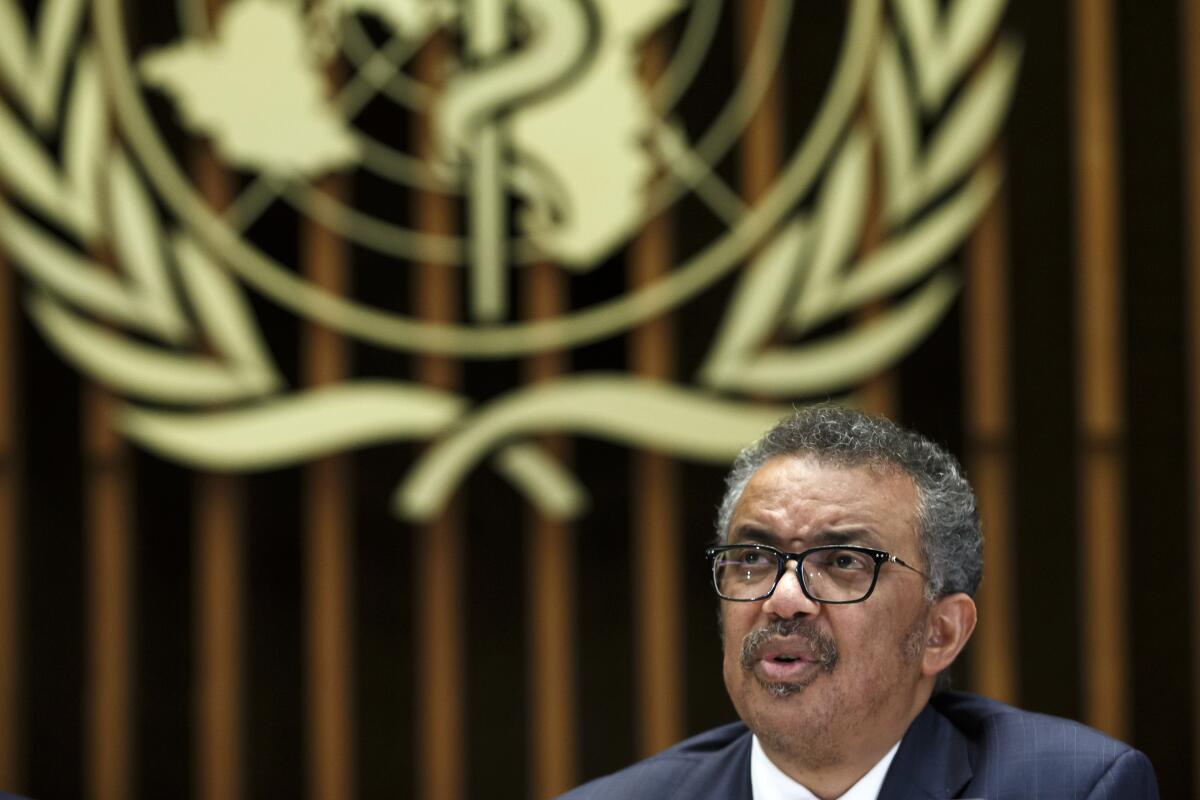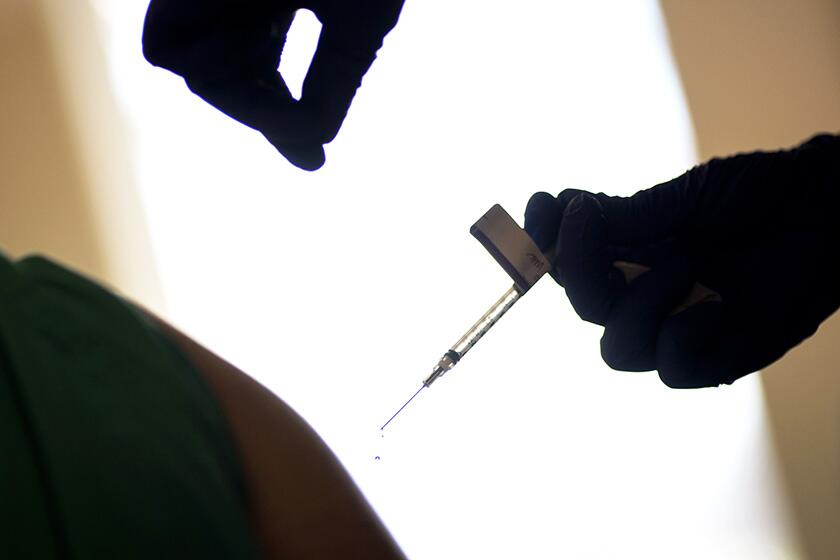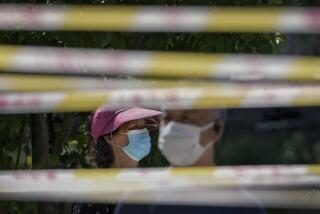WHO calls for expanded measures to find coronavirus variants

- Share via
The head of the World Health Organization on Monday urged scientists around the world to step up genomic sequencing of coronavirus samples to ensure that new variants are detected and studied.
A new variant has been detected in Britain and South Africa, and modeling studies by researchers in the United Kingdom suggest it may be up to two times more infectious than earlier versions of the virus. But other scientists have pushed back on that assertion as they continue to study the implications of its changes.
For instance, a particular version of a virus can become dominant if it is a “founder” strain — the first one to take hold and start spreading in an area — or because super-spreader events helped it become widely established.
So far, there are no indications that the new variant causes people to develop more serious cases of COVID-19 or that it increases their risk of death.
British scientists have found a version of the coronavirus with a cluster of genetic changes that make it more transmissible and perhaps more dangerous.
Still, its discovery has triggered a slew of travel restrictions, including a requirement that travelers flying from the U.K. to the U.S. get a negative coronavirus test before boarding their flight.
With the pandemic entering its second year, WHO Director-General Tedros Adhanom Ghebreyesus said that “there will be setbacks and new challenges in the year ahead — for example new variants of COVID-19 and helping people who are tired of the pandemic continue to combat it.”
He said that the WHO is working closely with scientists across the world to “better understand any and all changes to the virus” and their impact.
Tedros said he wanted to “underscore the importance of increasing genomic sequencing capacity worldwide” and of sharing information with the U.N. health agency and other countries.
“Only if countries are looking and testing effectively will you be able to pick up variants and adjust strategies to cope,” he said.
The question of how many people must be vaccinated to reach herd immunity against COVID-19 is of crucial importance. Experts say the number is probably higher than previously thought.
Many of the changes in the U.K. strain affect the coronavirus’s spike protein, which is a target of COVID-19 vaccines. Health officials in the U.S. and elsewhere have said the current vaccines should work just fine against the virus, though they are working to confirm that.
“My expectation is, this will not be a problem,” said Moncef Slaoui, the chief science adviser for the U.S. government’s COVID-19 vaccine campaign.
Officials from Pfizer partner BioNTech and AstraZeneca have said the effectiveness of their vaccines should not be hampered by the new variant.








